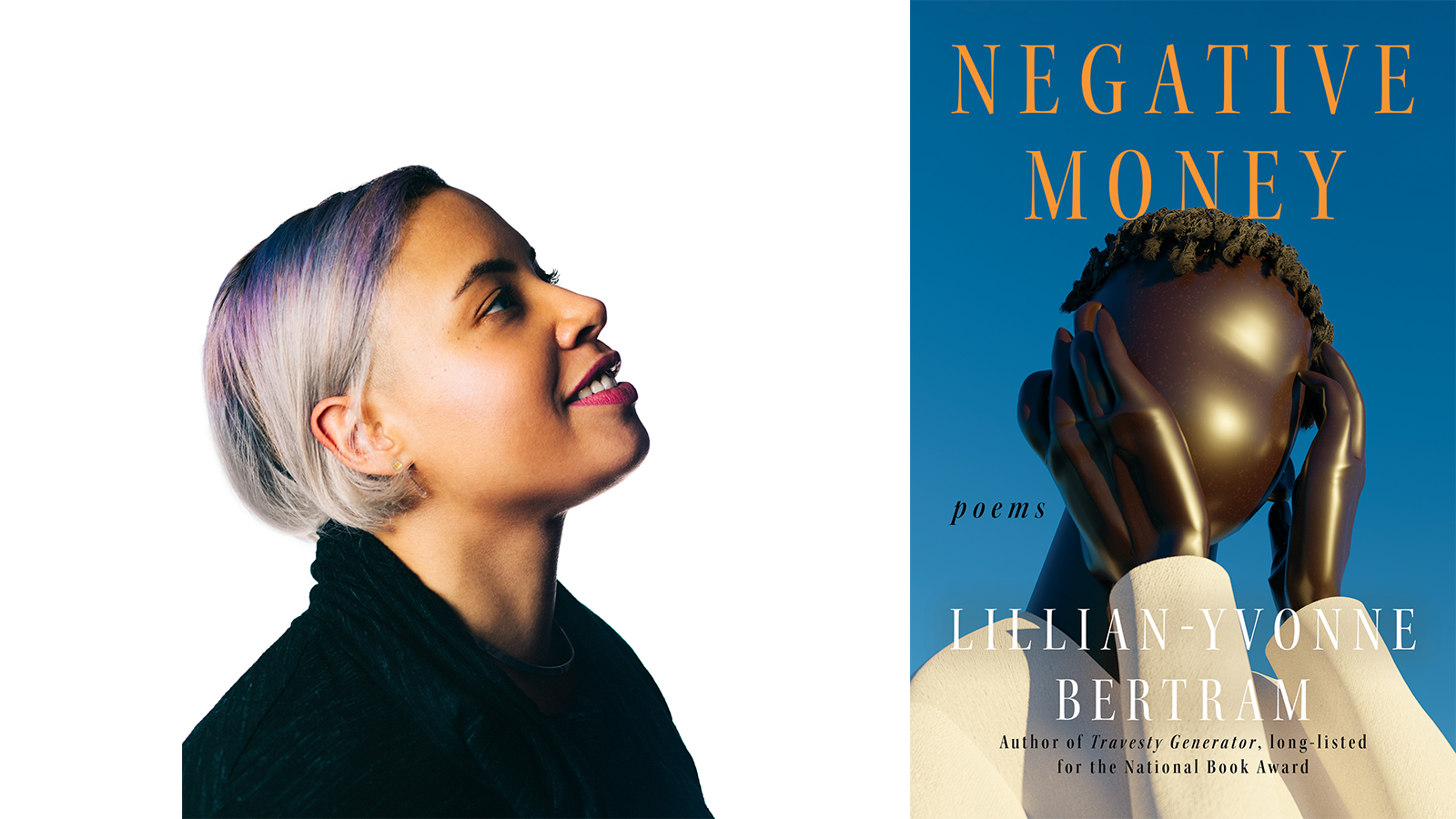Lillian-Yvonne Bertram to Read From 'Negative Money'
December 01, 2023

The poet will share some of their computational poetry Dec. 6.
By Chloe Kim
Associate Professor Lillian-Yvonne Bertram's latest book of poetry focuses on money—or rather, the lack of it. "Negative Money," published this past June, explores themes of race, gender, debt and love through a range of poetic styles.
Bertram writes computational poetry, a genre that utilizes algorithms and computer programming. Using coding languages like Python, they create computer programs to generate words and lines of poetry within specific parameters.
Calling the book "profound," Publishers Weekly said the poems "bear witness to the precarity of living on the margins of society ... [stirring] readers into necessary reflection." Bertram also spoke to NPR’s Marketplace about how the poems reflect “themes that [they] live.” They will read from "Negative Money," which was a finalist for the New England Book Award in Poetry, in a Writers Here and Now event on Dec. 6.
In advance of their reading, we caught up with Bertram to discuss how they became involved with computational poetry and digital art. Bertram directs the University of Maryland M.F.A. in creative writing program.
How did you first become interested in computational poetry?
The short version is that computational poetry and writing seemed like natural extensions of the kinds of experimental work I was already doing and interested in doing. I was looking for other directions into which I could push my poetry, and I became aware of other writers who were using technology in very interesting ways. When I found other computational poets, like Nick Montfort, and the work of Amaranth Borsuk, I was quite persuaded to try it myself. I knew it would be a challenge to learn programming so that I could understand how people like Nick did their work, but it was something I wanted to try. Then, I just spent several years teaching myself the things I would need to know in order to accomplish the projects I wanted to do. Once I got into computational poetry, my interests evolved into other kinds of digital work and generative art and artificial intelligence.
What are you most excited about in your roles as associate professor and director of the M.F.A. program?
I am most excited about getting to know the students and finding out how to use my skills to help them achieve their goals. My hope for the M.F.A. program is that we can further develop and grow the program and programming so that it serves the needs of contemporary students now and into the future, whether they choose to devote their lives to writing or otherwise.
You teach poetry workshops and courses on poetic form. What is your favorite aspect of teaching?
My favorite aspect of teaching is learning—learning new things in order to teach them, and learning new things from the students.
Bertram is also the author of “Travesty Generator,” a book of computational poetry that received the Poetry Society of America’s 2020 Anna Rabinowitz prize for interdisciplinary work and was longlisted for the 2020 National Book Award for Poetry. They are the recipient of a National Endowment for the Arts Poetry Fellowship. Their other poetry books include “How Narrow My Escapes,” “Personal Science,” “a slice from the cake made of air” and “But a Storm is Blowing From Paradise.” Their new chapbook, written with AI, is called “A Black Story May Contain Sensitive Content” and won the 2023 Diagram/New Michigan chapbook contest.


